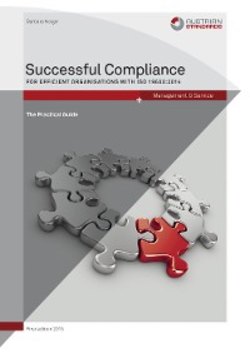Читать книгу Successful Compliance - Barbara Neiger - Страница 12
1.2.1Responsibility of organisations in the international arena
ОглавлениеThe majority of European countries have implemented the responsibility of legal entities in their legal systems. In continental Europe, a distinction is made between purely criminal, purely administrative or mixed models,[9] while Anglo-Saxon countries such as the UK, Ireland or Cyprus know no administrative criminal law. In some countries (e.g. France, Italy, Switzerland, Hungary, and Poland), the state and its regional authorities are entirely exempt from liability. In some countries (France, Netherlands, Croatia, UK), such a restriction applies only to official activities. The liability of publicly-owned companies is not limited in principle. In most countries, the liability of legal entities covers all, and in some countries, only a few offences restricted to those governed by international agreements (e.g. in Spain, Italy and Malta).[10] In some countries, the accountability of liability requires that the act was carried out to the benefit of, on behalf of, in the name of or in the interests of the legal entity (e.g. Germany, France, Italy, Poland and Slovenia). In some countries (e.g. Switzerland, the UK), a mere connection with the business activity of the legal entity is sufficient for the establishment of corporate liability. In most states (e.g. Germany, France, Netherlands, Italy, Poland and Hungary), a legal entity may be held accountable for offences committed by a subordinate employee only in connection with a lack of control or supervision by a person in a leading position. In some countries (Belgium, Switzerland, Romania), an act committed by any person working for a legal entity is sufficient to trigger corporate liability.[11] Almost all jurisdictions make provision for the punishment of the legal entity in addition to that of the natural person. In Belgium, insofar as a natural person did not act knowingly or wilfully that entity (natural person or legal entity) that bears the greatest guilt is the one liable for punishment.
In Switzerland, liability of a legal person only occurs if no natural person can be held accountable for the offence except for offences involving corruption, money laundering, or those committed by a criminal organisation.[12] In Germany, the Criminal Code applies only to individuals – not to companies. Companies can be held liable under civil law in accordance with the Administrative Offences Code (OWiG). Fines are limited to EUR 10 million. The confiscation of all economic benefits acquired by, for example, bribery is not subject to any limits.[13]
